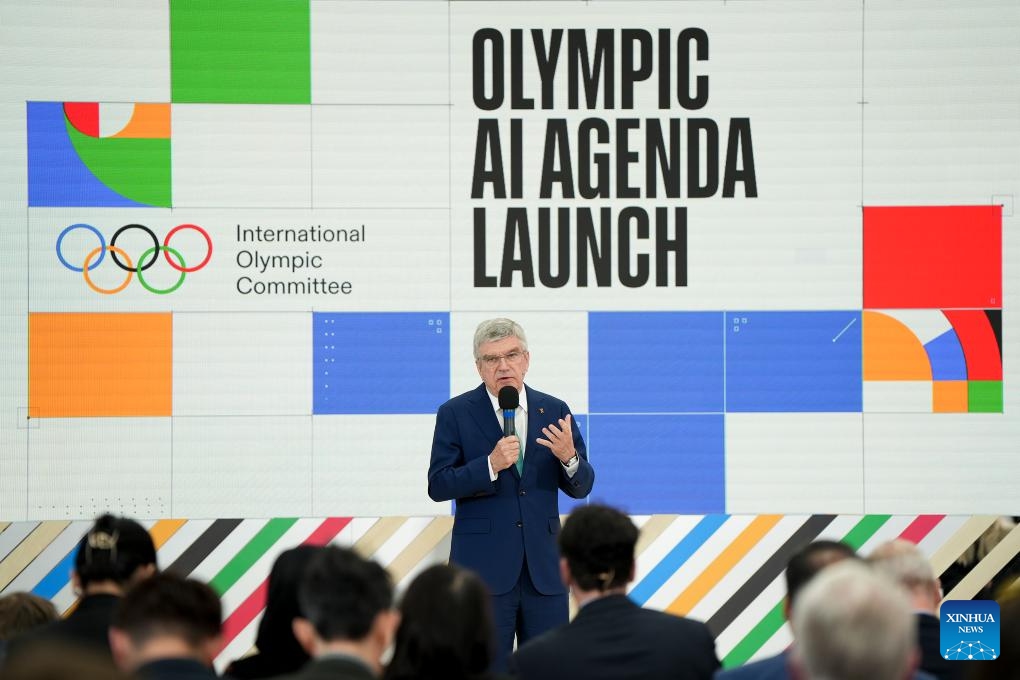
The International Olympic Committee president Thomas Bach speaks during a press conference on the launch of the Olympic AI Agenda in London, Britain, on April 19, 2024. The International Olympic Committee (IOC) launched the Olympic AI Agenda here on Friday, setting out the envisioned impact that Artificial Intelligence (AI) can deliver for sport and how the IOC intends to lead on the global implementation of AI within sport.(Photo: Xinhua)
The International Olympic Committee (IOC) launched the Olympic AI Agenda here on Friday, setting out the envisioned impact that Artificial Intelligence (AI) can deliver for sport and how the IOC intends to lead on the global implementation of AI within sport.
At the launching event held at Lee Valley VeloPark, one of the venues for the 2012 London Olympic Games, IOC president Thomas Bach introduced the Olympic AI Agenda as the first holistic approach by the leader of the Olympic Movement in this field.
"This Olympic AI Agenda lays out both opportunities and risks. It is a conceptual, and at the same time, a practical approach," said Bach. "It defines our vision, it defines our ambition and it defines our guiding principles, embracing the full potential of AI."
The IOC has defined a strategic goal to leverage AI effectively across five key focus areas, including supporting athletes, clean competition and safe sport, ensuring equal access to the benefits of AI, optimizing Olympic and Paralympic Games Operations with a focus on sustainability, growing engagement with people as well as driving efficiency across the management of the IOC and sport.
But Bach also insisted that the center of the Olympic AI Agenda is the athletes "because the athletes are the heart of the Olympic Movement".
"AI can help to identify athletes and talents in every corner of the world. AI can provide more athletes with access to personalized training methods, superior sports equipment, and more individualized programs to stay fit and healthy," said Bach.
"Beyond sporting performance, AI can revolutionize judging and refereeing, thereby strengthening fairness in sport. AI can improve safeguarding in sport. AI will make organizing sporting events extremely efficient, will transform sports broadcasting and will make the spectator experience much more individualized and immersive," he continued.
During the event, experts from the fields of sport, technology, business and academia also discussed the practical application of AI tools to sport and their implementation.
